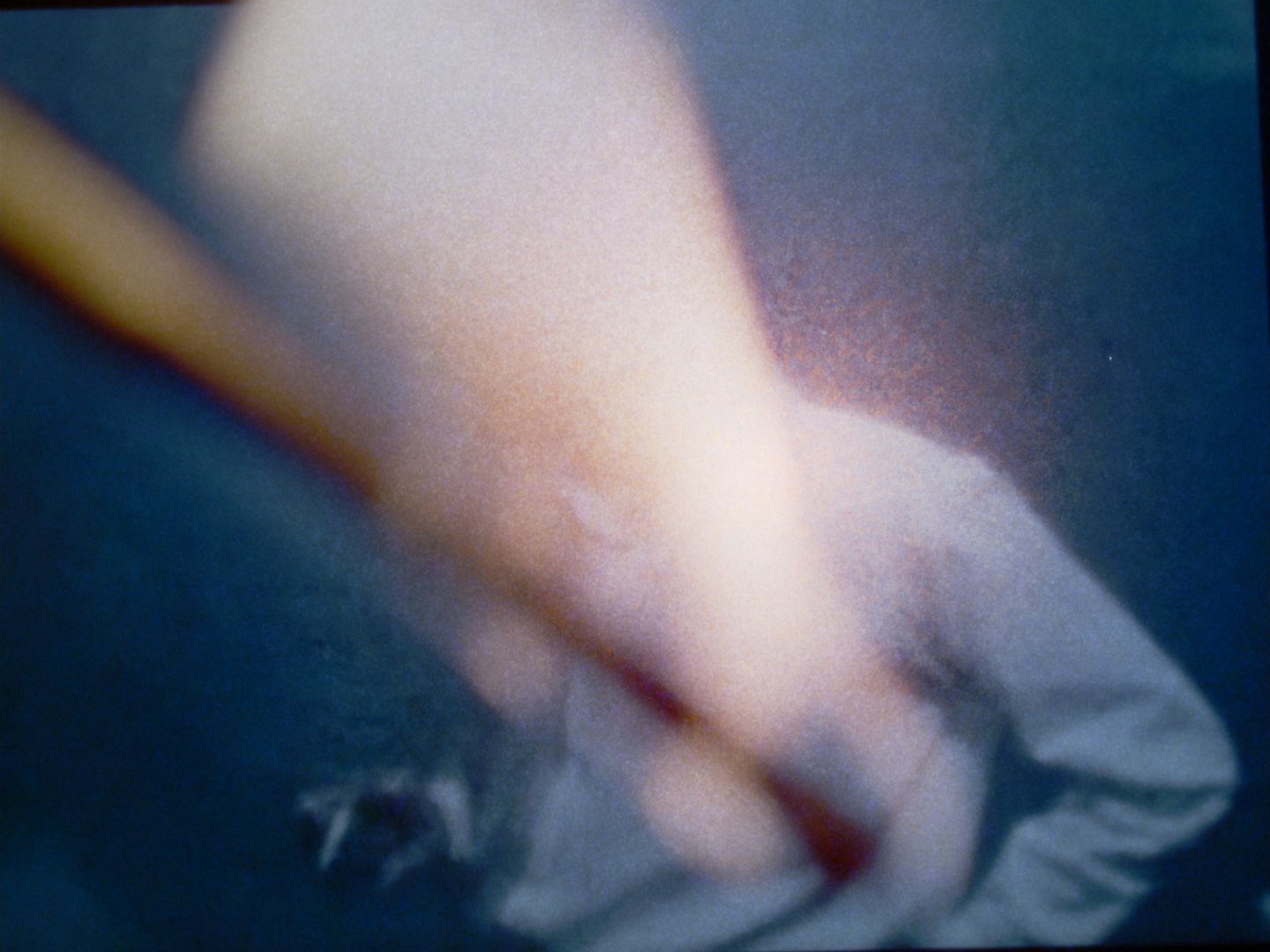Memory Drum brings together memory, water, and family on 16mm film with a percussive throughline. The works of this program are elemental yet figurative, exploring kaleidoscopic relationships between parent and child, distortion and fidelity, rhythm and stillness. Leighton Pierce’s Glass (1998) initiates the program with an impressionistic tableau of children in the backyard through a glass menagerie of lens manipulation. Alee Peoples’ Hey Sweet Pea (2023) stages fanciful recitations that sweep us into a strange, hollowed-out nostalgia of sci-fi scripts and mama’s old voicemails in the LA suburbs. Carl Elsaesser’s How to Run a Trotline (2024) holds the drumline as the program’s luminous cornerstone, a spirited reflection on paternal tethers, both filmic and genealogical, that fishes for something alive and kicking in each of its brimming images. O Banho (The Bath) (2022) is Maria Inês Gonçalves’ turn to the phenomenology of water as filtered through childhood memories of bathing. As if beckoning us through amniotic fluid, toy boats and stuffed animals dunk and bob like repressed things, water goes where it shouldn’t go, and in the tumult we catch sight of Winnie the Pooh’s Heffalumps galloping through the ether, having long forgotten how they haunted us so.
Program:
Glass – Leighton Pierce (1998, US, 16mm film, 7:00 min)
Hey Sweet Pea – Alee Peoples (2023, US, 16mm film, 11:11 min)
How to Run a Trotline – Carl Elsaesser (2024, US, 16mm film to digital, 18:10 min)
O Banho (The Bath) – Maria Inês Gonçalves (2022, Portugal/Spain, 16mm and 8mm to digital, 8:00 min)
Total runtime: 55 mins
Going on it’s third year, Peripheries Experimental Film & Video Festival is a yearly, non-competitive experimental showcase, which serves to highlight contemporary works of experimental film, as well as screening significant historical works for the purpose of expanding awareness and appreciation for the experimental mode of filmmaking and its contemporary practitioners, both international and domestic.




